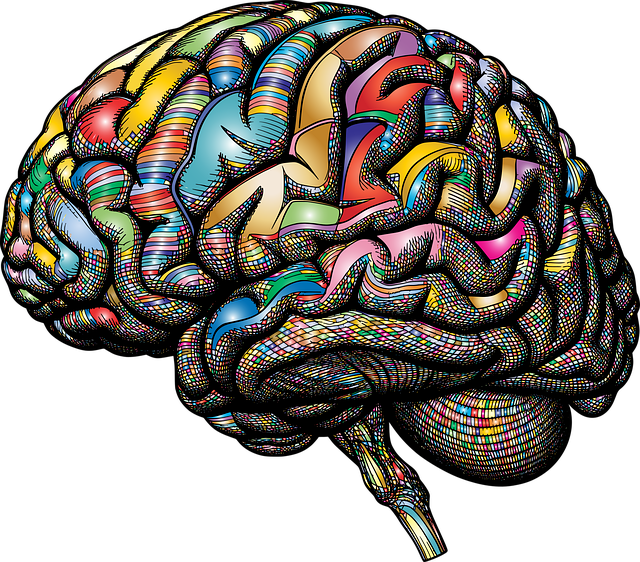Denver Major Life Transitions Therapy (DMLT) offers a specialized approach to support mental wellness during significant life changes, incorporating crisis intervention, compassion cultivation, and anxiety relief strategies. Evaluating DMLT involves both direct measures like participant surveys post-program and indirect tracking of self-esteem, burnout prevention, and self-care practices over time, alongside qualitative methods such as interviews and focus groups, to gain insights into the program's effectiveness and areas for improvement. Quantitative analysis using statistical methods enables data-driven decisions, ensuring programs like DMLT focus on effective strategies and continuous improvement based on emerging trends and client needs, ultimately enhancing mental health support services.
“Unveiling the effectiveness of mental wellness programs is paramount in fostering positive outcomes. This article explores a comprehensive evaluation framework, ‘Denver Major Life Transitions Therapy’, offering a structured approach to assess such initiatives. We delve into diverse evaluation methods, from direct and indirect measures to qualitative insights and quantitative analysis. By examining participant perspectives, we gain valuable knowledge on program impact. Moreover, continuous improvement strategies are highlighted, emphasizing the importance of iterative evaluations in enhancing mental health support.”
- Understanding Denver Major Life Transitions Therapy: A Framework for Evaluation
- Assessing Program Impact: Direct and Indirect Measures
- Qualitative Methods: Uncovering Participants' Perspectives
- Quantitative Analysis: Statistical Techniques for Data Interpretation
- Continuous Improvement: Iterative Evaluation Strategies
Understanding Denver Major Life Transitions Therapy: A Framework for Evaluation

Denver Major Life Transitions Therapy (DMLT) offers a unique and comprehensive framework for evaluating mental wellness programs. This approach recognizes that life transitions, such as major changes at work or personal milestones, significantly impact an individual’s mental health. By understanding these transitional periods, therapists can tailor interventions to address specific needs. DMLT incorporates various methods, including assessment tools and therapeutic techniques, to gauge progress and ensure effective support during challenging times.
The therapy framework emphasizes the importance of crisis intervention guidance, compassion cultivation practices, and anxiety relief strategies. It encourages clients to navigate life’s twists and turns with resilience by fostering self-awareness and coping mechanisms. This holistic evaluation method allows therapists to adapt their approach, providing targeted assistance for each client’s unique journey towards improved mental wellness.
Assessing Program Impact: Direct and Indirect Measures

Evaluating the impact of a mental wellness program is a multifaceted process, especially when examining programs like Denver Major Life Transitions Therapy that target complex issues. Direct measures play a crucial role in understanding immediate effects; for instance, assessing participant reports of mood improvements or reduced anxiety levels through surveys immediately post-program can provide valuable insights. These direct measures offer quantitative data on the program’s short-term success.
Indirect measures, on the other hand, uncover more nuanced and long-lasting impacts. They include tracking self-esteem improvement over time, measuring burnout prevention efforts’ effectiveness, and observing changes in self-care practices. By combining both direct and indirect measurement methods, evaluators gain a comprehensive view of the program’s overall success in fostering mental wellness, such as enhancing participants’ resilience during life transitions.
Qualitative Methods: Uncovering Participants' Perspectives

Qualitative methods play a pivotal role in evaluating mental wellness programs by offering a deep understanding of participants’ experiences and perspectives. Through techniques like interviews, focus groups, and surveys, researchers can uncover nuanced insights into how individuals perceive their therapy journeys. This approach is especially valuable for complex topics such as Denver Major Life Transitions Therapy, where exploring personal stories and emotions is key to program success. By engaging in open conversations, facilitators encourage participants to share their unique views on various aspects of the program, including its effectiveness, helpful components, and areas for improvement.
Incorporating qualitative data allows for a more holistic evaluation, considering not just statistical outcomes but also the subjective well-being of individuals involved. This method is particularly relevant when examining programs focused on conflict resolution techniques or burnout prevention, as it provides a platform for participants to voice their challenges, coping strategies, and overall satisfaction. The insights gathered can guide improvements in therapy delivery, ensuring that mental wellness interventions are tailored to meet the diverse needs of those seeking support.
Quantitative Analysis: Statistical Techniques for Data Interpretation

Quantitative analysis plays a pivotal role in evaluating mental wellness programs, offering a structured approach to deciphering vast datasets. This method employs statistical techniques to measure and interpret changes in participant outcomes, providing valuable insights into the program’s effectiveness. Researchers in Denver, known for its Major Life Transitions Therapy initiatives, utilize advanced quantitative methods to assess interventions aimed at various aspects of mental health, including Depression Prevention strategies.
By employing t-tests, regression analysis, and randomized controlled trials, professionals can gauge improvements in symptoms, analyze trends over time, and identify key factors contributing to positive outcomes. This data-driven approach allows for evidence-based decisions, ensuring that programs like Mental Wellness Podcast Series Production focus on what works best in building resilience. It also facilitates comparisons between different interventions, fostering continuous improvement in mental health support services.
Continuous Improvement: Iterative Evaluation Strategies

In the realm of mental wellness program evaluation, continuous improvement is paramount, and iterative evaluation strategies play a pivotal role in enhancing the effectiveness of interventions like Denver Major Life Transitions Therapy. By adopting a dynamic approach to assessment, mental health professionals can adapt programs based on emerging insights and evolving client needs. This involves regular monitoring of treatment outcomes, gathering feedback from participants, and analyzing data to identify areas for refinement.
Iterative evaluation fosters a culture of Mental Health Awareness, enabling the design and implementation of Confidence Boosting initiatives that resonate with diverse populations. It encourages the integration of innovative strategies drawn from the ever-growing body of mental health research. Through such continuous improvement methods, programs can move beyond traditional static models, ensuring they remain relevant, accessible, and impactful in addressing community Mental Health Education Programs Design challenges.
The evaluation of mental wellness programs, such as Denver Major Life Transitions Therapy, is a multifaceted process that leverages both quantitative and qualitative methods. By combining direct and indirect measures, statistical analysis, and participant perspectives, we gain valuable insights into program effectiveness. This comprehensive approach allows for continuous improvement, ensuring that the therapy remains responsive to the evolving needs of its clients. Ultimately, these evaluation strategies are essential tools to optimize the impact of mental wellness programs and enhance the lives of those they serve.














